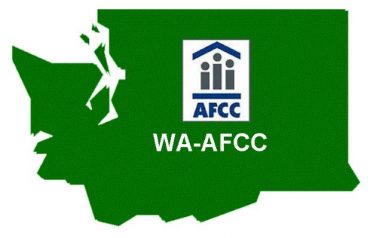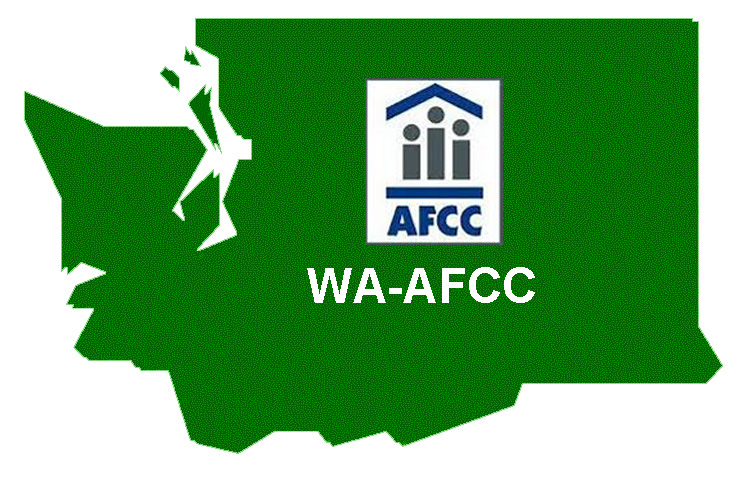
AFCC Washington Chapter
10th Annual Conference
Washington Athletic Club, Seattle
April 25, 2025
Registration is closed!
The 10th Annual Conference is Friday, April 25, 8:45 a.m. – 5:15 p.m.
Conference registration fees:
-
- AFCC Member: $325
- AFCC Student: $275
- Nonmember: $375
- Full-time WA Counties Court Personnel: $225
Parent child contact problems (PCCP) present some of the most daunting issues we face in family law. Explore challenges and solutions for PCCP cases at the AFCC Washington Chapter 10th Annual Conference, “Resist, Refuse and Resolve: Turning the Corner on PCCP Conflict,” on April 25, 2025, in Seattle.
Conference participants can also take a deeper dive by registering for a half-day Seminar “Advanced Interventions and Solutions for PCCP Cases” on April 26.
Conference speakers Leslie Drozd, PhD, and Barbara Fidler, PhD, CPsych, AccFM, FDRP PC, will focus on intermediate and advanced concepts and solutions that teach us how to intervene with these complex PCCP dynamics.
Judicial officers, forensic professionals, mental health specialists, and our collaborative partners supporting families with PCCP cases are invited to attend this full-day master class training. APA, MCLE, and mental health professional continuing education contact hours will be provided.
We’ll examine how PCCP cases present tremendous challenges to the Family Courts, Family Attorneys, Parents Evaluators, GAL, Parenting Coordinators, and Mental Health Specialists who work with resist/refuse dynamics (RRD) in high-conflict family systems.
Mental health professionals can hone their skills to assess PCCP:
- Learn intermediate and advanced solutions to intervene with complex PCCP dynamics.
- Explore how to implement a multi-factorial approach to identify all root causes of a PCCP.
- Learn techniques to assess the severity of a PCCP case as mild, moderate or severe, and how differing levels of severity require different interventions.
- Examine ways to work on an interdisciplinary team for severe PCCP cases.
- Review metrics to measure the Resist/Refuse Dynamic (RRD) using assessment tools, to determine if the RRD is increasing and/or decreasing throughout the intervention.
- Learn strategies to protect yourself from liability issues and board complaints. Working with attorneys you trust to support your clinical intervention and be part of the multidisciplinary team is essential.
Attorneys can serve as PCCP first responders. How can you serve your clients in PCCP cases while protecting the best interests of the children involved?
- Discover interventions to implement prior to a parenting evaluation, including “urgent care consultants,†brief-focused assessments, therapy, and co-parent coaching. Ideally, this “urgent care†model will result in fewer cases referred for parenting evaluations, and better outcomes for children.
- Learn how to educate your clients on decreasing co-parenting conflict to support a more successful intervention outcome and healing for their families.
- Gain a better understanding of what mental health providers and Parenting Coordinators are assessing before they take on your case.
- Explore how your client control can help the provider team achieve outcomes that support the best interests of the child.
For a GAL, at the end of the day, it’s about the best interests of the children. Expand your toolbox to protect the best interests of the children in PCCP:
- Explore the importance of looking beyond the immediate family (parents and children) to examine how family systems can include extended family as well as outside supports and influences.
- Coming from the framework that PCCP issues are a ‘parenting problem’ first, not as a ‘child problem,’ learn how teamwork and collaboration can steer us away from the polarization of the parties, providers, and case plan.
- Learn how to use the tools for Resist Refuse Dynamics, tools for screening DV and IPV. Utilizing RRD will help you write better reports and make concise and clear recommendations
Parent coordinators and case managers will learn how to set up a provider team that will support the intervention goals, rather than work against the goals:
- Learn how to set realistic expectations for the intervention outcome to the families, attorneys, and the provider team.
- Explore approaches to a variety of provider team issues, including intervention assessment, requesting single judge jurisdiction and status hearings for challenging cases, and the importance of selecting providers who will follow AFCC guidelines for court-involved therapists.
- Discover techniques to coordinate a team of providers to tackle challenging cases.
- Learn methods to rule out cases that do not have a good chance of success or are high risk cases to take on.
- Learn techniques to conduct an intervention assessment to present to attorneys and judges to set a case up for success.
- Discover methods to decrease polarization and conflict between parents and their attorneys.
Judges can explore the complexity of PCCP cases and the multi-faceted approach necessary for intervention:
- Discuss methods to not just let cases stand at ‘status quo,’ which enables the parties to become more entrenched in their respective positions. This includes the importance of holding the parties accountable, setting realistic expectations, and utilizing court reviews.
- Explore cases from the standpoint that litigants don’t make good co-parents. The co-parenting relationship is the ‘unseen client’ in court involvement and litigation.
- Discover techniques to further teamwork and collaboration to avoid polarization of the parties, providers, and case plan. Each provider has a client they are advocating for, which often is not inclusive of the family system.
Case challenges include:
-
- What does the court do when a 14-year-old child is refusing contact with a parent?
- What is the role of attorneys, the court, and other providers in cases involving resist/refuse dynamics (RRD)?
- How can the court recommend risk assessments and interventions without delaying timely and safe contact between children and the rejected parent when time is the enemy in these cases?
Dr. Drozd and Dr. Fidler will lead us in an exploration of intermediate and advanced PCCP topics, including:
-
- How do we assess mild-moderate and severe interventions for PCCP cases?
- What are evidence-informed step-wise decision-making and decision trees to assess PCCPs?
- How do we determine if a case is right for us and if we are right for a case?
- How can we provide vital risk-assessment while simultaneously ensuring safe parent/child contact?
- What do we do in cases where there is DV, IPV, trauma, or other restrictions based on RCW 26.09.191?
- What is the role of the Court, Parenting Evaluator, GAL, Parenting Coordinator, mental health specialist, and attorney?
- How can we implement a family systems model of intervention with the participation and active involvement of the favored parent at the onset in PCCP cases?
- What are some Measurement Tools to utilize throughout intervention to assess the increase or decrease of the Resist-Refuse Dynamics?
- What are ethical considerations for providing treatment to parents and children who do not want to participate?
- What do we do with a case that is not a good referral for intervention?
- How can we utilize a multiple hypotheses perspective?
- What is the continuum of intervention and blended sequential model for PCCP cases?
- How can we set realistic expectations for the family in terms of intervention success?
Take a Deeper Dive
Saturday Seminar: Advanced Interventions and Solutions for PCCP Cases, April 26, 9:30 a.m. – 12:30 p.m.
At this half-day seminar, Dr. Drozd and Dr. Fidler will explore additional complexities of PCCP cases. The presenters will be integrating PCCP concepts and interventions using case study examples.
-
- The Saturday Seminar is an add-on event for the Conference.
- The registration fee for the Saturday Seminar is $75.
Recorded Videos
You can watch a pair of videos hosted by association leaders. These videos will be available prior to the conference. After you register, you will be informed when the videos are available with downloading instructions.
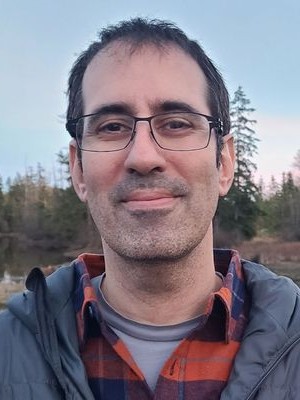 “PCCP 101 Foundations for Early Learners,” featuring David Goldman, MS CMHC, MAEd, LMHC
“PCCP 101 Foundations for Early Learners,” featuring David Goldman, MS CMHC, MAEd, LMHC
Parent-Child Contact Problems (PCCPs) are known to be one of the most complex, high-conflict, and divisive challenges in family law. During the in-person conference, you’ll learn from two leading experts who will share best practices for professionals.
To ensure that all participants begin the conference with a foundational understanding of PCCPs, this video serves as an introduction to foundational concepts of parent-child contact problems. You’ll learn important terminology, how to define and understand PCCPs using a systems approach, how to determine the severity of a PCCP, a framework for addressing PCCPs, and the roles of various professionals in addressing PCCPs.
By watching this video, participants will be better able to:
-
-
- Define and use key terminology relevant to parent-child contact problems (PCCPs)
- Conceptualize PCCPs using a multifactor and multimodal systems approach
- Differentiate roles of various professionals in addressing PCCPs
-
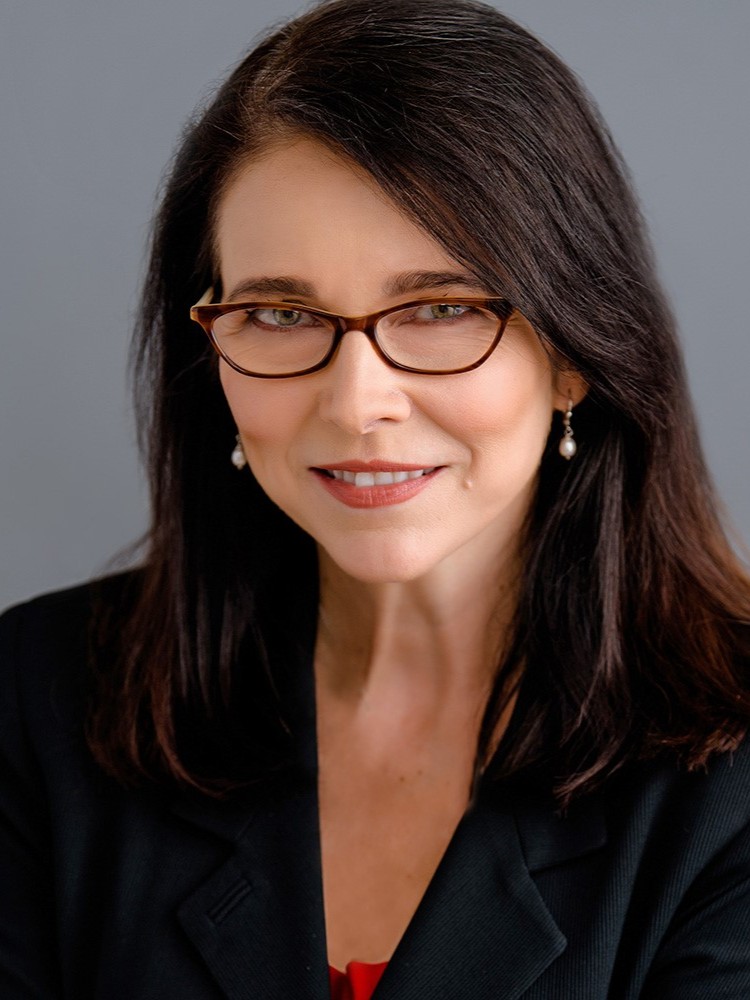 “Attorneys as First Responders,” featuring Jennifer Wheeler, PhD
“Attorneys as First Responders,” featuring Jennifer Wheeler, PhD
Resist-Refuse Dynamics (RRD) cases represent a crisis to which we must urgently adapt. In this video, participants will learn about an urgent care model for RRD cases, in which family law attorneys are the first responders who must be equipped with tools to appropriately triage RRD cases.
We’ll explore limitations of parenting evaluations as a first response, and interventions to implement prior to a parenting evaluation, including urgent care consultants, brief-focused assessments, therapy, and co-parent coaching. Ideally, this urgent care model will result in fewer cases referred for parenting evaluations, and better outcomes for children.
By watching this video, participants will be better able to:
-
-
- Identify three red flags that a family system is in crisis and in need of urgent care, and therefore may not be appropriate for a parenting evaluation until they have stabilized.
- Explain the risks and limitations of a parenting evaluation while a family is still in the midst of an ongoing crisis.
- Identify three options for triaging urgent care cases to more appropriate services or interventions other than a parenting evaluation.
- Formulate an argument for the court why a family should be triaged to another service or intervention other than a parenting evaluation.
-
About Our Conference Speakers
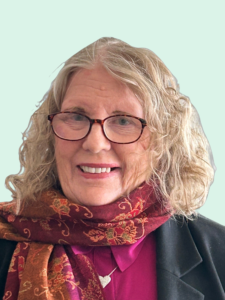 Dr. Drozd is a licensed psychologist who works clinically and forensically with families in the various stages of divorce, including families with parent-child contact problems, co-parenting therapy, family therapy, reintegration therapy, and parent coordination. She is part of a group of experts producing a 16-hour training for the AFCC: Advanced Issues in Family Law: Parent-Child Contact Problems.
Dr. Drozd is a licensed psychologist who works clinically and forensically with families in the various stages of divorce, including families with parent-child contact problems, co-parenting therapy, family therapy, reintegration therapy, and parent coordination. She is part of a group of experts producing a 16-hour training for the AFCC: Advanced Issues in Family Law: Parent-Child Contact Problems.
 Dr. Fidler is a psychologist in private practice who has more than 38 years of experience working with divorcing families. She has authored four books and many chapters and peer reviewed papers, including as guest co-editor of two special issues of the Family Court Review (FCR) on alienation (January 2010 and April 2020). She served on the AFCC task force that developed the Guideline for Parenting Coordinators in 2019.
Dr. Fidler is a psychologist in private practice who has more than 38 years of experience working with divorcing families. She has authored four books and many chapters and peer reviewed papers, including as guest co-editor of two special issues of the Family Court Review (FCR) on alienation (January 2010 and April 2020). She served on the AFCC task force that developed the Guideline for Parenting Coordinators in 2019.
Registration Cancellation/Refund Policy
Transfer of registration to another person may be done at any time prior to the event without a fee. All requests for refunds must be made in writing. Written notice of cancellation received by email by April 7, 2025, will be issued a full refund. No refunds will be issued after April 7, 2025. If you have any questions about the refund policy, please email the Conference Committee.
Continuing Education
-
- APA: Contact hours available for the April 25 in-person conference for psychologists. AFCC National is approved by the American Psychological Association to sponsor continuing education for psychologists. AFCC maintains responsibility for the program and its content.
- MCLE: CLEs available for the April 25 in-person conference and the recorded videos.
- Mental health professionals: Contact hours available for the April 25 in-person conference and the recorded videos. This training provides contact hours for Washington State Licensed Mental Health Counselors, Licensed Marriage and Family Therapists, and Licensed Social Workers (pending).
